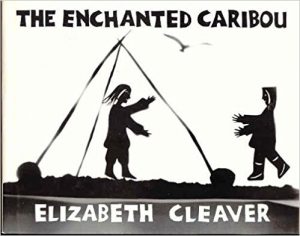 This is the story of Nanabozho and how he brought fire to the Indians. Nanabozho transformed himself into a rabbit, tricked his way into a warrior’s wigwam and stole a torch of fire enabling his people to warm themselves in winter and cook their food. So that he would always be remembered for what he had done, Nananbozho worked his magic on the trees and every fall we still see the flaming colors of fire in their leaves.
This is the story of Nanabozho and how he brought fire to the Indians. Nanabozho transformed himself into a rabbit, tricked his way into a warrior’s wigwam and stole a torch of fire enabling his people to warm themselves in winter and cook their food. So that he would always be remembered for what he had done, Nananbozho worked his magic on the trees and every fall we still see the flaming colors of fire in their leaves.
Primary (ages 6-9)
Material appropriate for primary age groups
The Enchanted Caribou
The Eskimo: The Inuit And Yupik People (New True Books)

Beginning readers are introduced to the land and peoples of the far north.
Amadi’s Snowman

As a young Igbo man, Amadi does not understand why his mother insists he learn to read, since he already knows his numbers and will be a businessman one day, but an older boy teaches him the value of learning about the world through books.
Crabs For Dinner
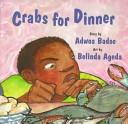
When their Mum cooks traditional African dishes, the children refuse to eat them, until their grandmother comes from Ghana, and teaches them something about their family traditions.
Fossa: A Fearsome Predator (Uncommon Animals)
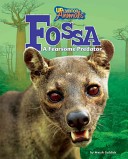
For years, people on the secluded island of Madagascar told scary stories about a mysterious creature called the fossa. According to some, this vicious killer crept out of the forest at night to steal babies from their cribs. Few people, however, had actually seen this rare animal. Were the stories true? Scientist Luke Dollar was about to find out. In 1996, he set up camp in Madagascar to study these mysterious and misunderstood creatures– and finally learn the truth. In Fossa: A Fearsome Predator, kids follow Dollar as he discovers the secrets of this fascinating, uncommon animal. Large, full-color photos and a narrative format will keep readers turning the pages for more.
Kingdom: Savage Safari

Africa is home to some of the animal kingdom’s most ferocious hunters and savages. Whether screeching through the rainforests, prowling the wide savannas, or lurking along rivers, these brutes make shrot shrift out of all who dare cross their paths. To dominate their realms and evade attackers, some beasts use massive strength and vicious claws while others rely on impressive speed and cunning tricks. What equipment and skills would you need to survive? Jump in and find out!
The Star-Bearer: A Creation Myth from Ancient Egypt

A five-thousand-year-old story.When the godchild Atum emerges from inky silence to begin his work of creation, he first conjures up the passionate gods of air and rain, followed by Geb, god of the earth, and Nut, goddess of the sky. But earth and sky cling to each other, sharing whispered secrets and laughter, leaving Atum no room to complete his creation. So Atum has no choice but to force them apart, infuriating Geb and leaving Nut sad and lonely . . . until Thoth, the god of wisdom, takes pity on her.
What Can You Do With a Paleta?
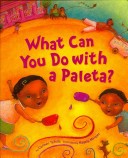
A young Mexican American girl celebrates the paleta, an icy fruit popsicle, and the many roles it plays in her lively barrio.
Tooth And Claw: Animal Adventures In The Wild
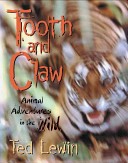
Author/illustrator Ted Lewin relates fourteen of his experiences with wild animals while travelling the world, following each anecdote with facts about the featured animal and its habitat.

